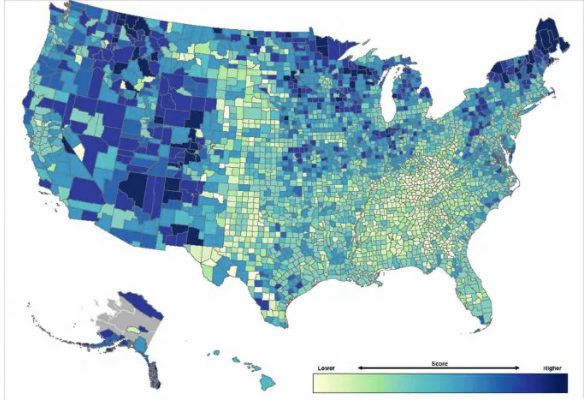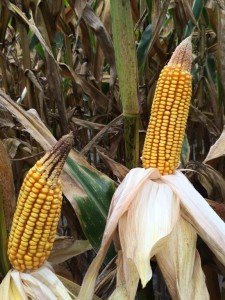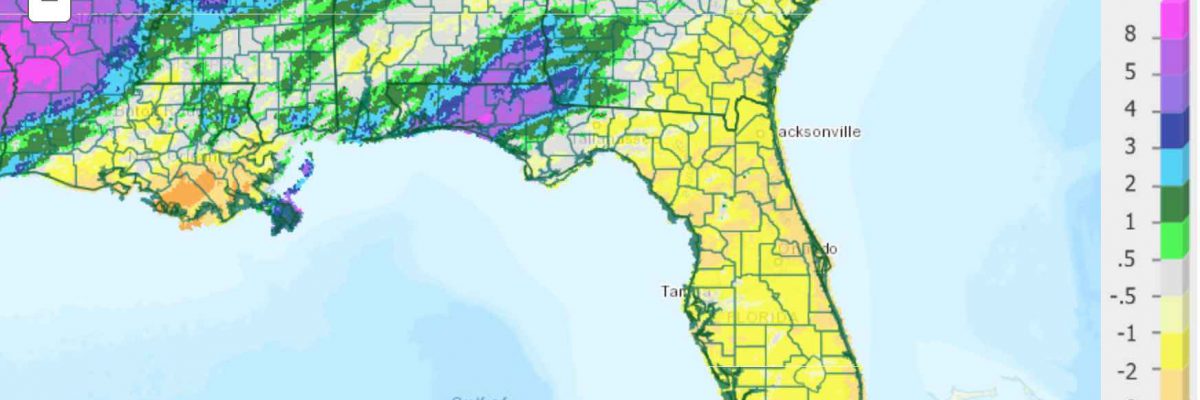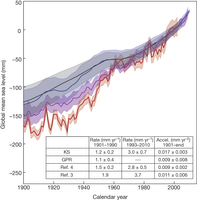2018
-

Pacific Standard has published a new map based on a report from the EPA published quietly back in October which shows which counties in the US are most and least resilient to a changing climate, based on information from 117 different data sets. Unfortunately, the Southeast does not come off well, not necessarily due to…
-

The National Weather Service office in Peachtree City GA announced today that due to the very warm temperatures in February leading to an early onset of the growing season, they are starting their spring frost/freeze warning program to help producers plan for frost protection. Here is what they said: Frost and/or Freeze-related Watches and Warnings…
-

Chris McGehee, the state coordinator for CoCoRaHS in Georgia, noted today that we just passed the 10th birthday from the establishment of CoCoRaHS in Georgia. Here is her comment from Facebook: “The actual date snuck by me… I just realized that Georgia CoCoRaHS’ first stations were defined on Feb 20th, 2008, so we are officially…
-

Here is a nice article from Farm Journal’s PORK newsletter which discusses the impacts of weather on grains for swine feed. It includes a discussion of the effects of weather on planting, pollination and crop yield as well as storage and other factors. You can read it here.
-

The latest climate summary for Florida for the month of February shows that the preliminary state average temperature is most likely to be the warmest ever Florida since records began in 1895. Many city records were also broken and a number of daily records were set. You can read more at https://climatecenter.fsu.edu/products-services/summaries?id=519.
Posted in: Climate summaries -

The Washington Post has an interesting discussion of how the climate of the Little Ice Age a few hundred years ago affected the development of civilizations across the world. During that time period centered on the 16th century, there was a lot of upheaval to world civilizations as cold conditions caused crop failures and altered…
-

The European Space Agency has a new video out which explains various factors that are causing an increase in sea level at most places around the globe. They include thermal expansion of water, melting of Greenland and Antarctic ice sheets, and changes in water storage. You can view it at Space.com at https://www.space.com/37169-climate-change-effects-earth.html.